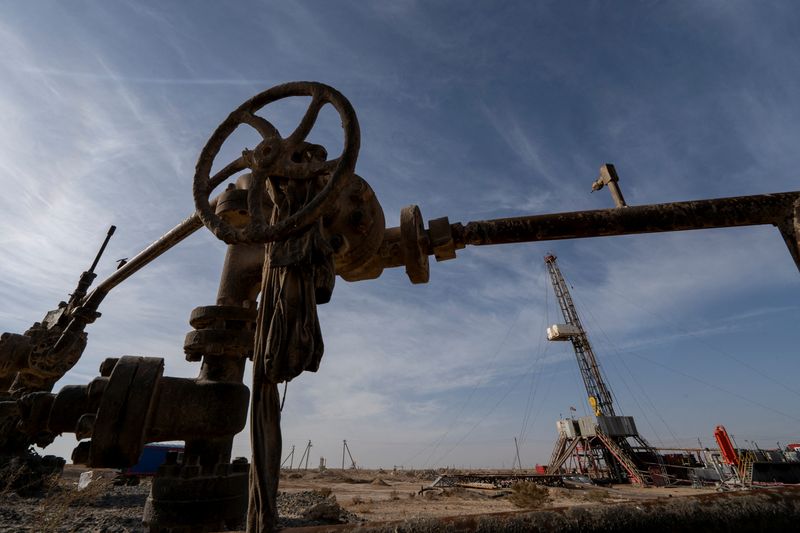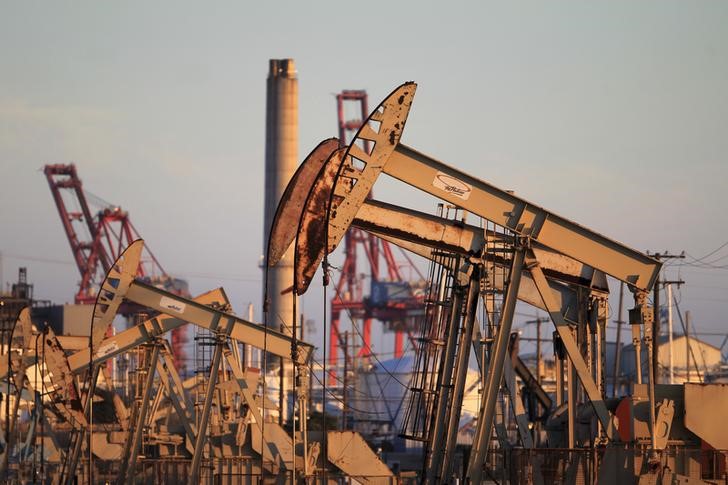(This August 2 story has been corrected to reflect that it was Brent that settled at its lowest level in seven months in the headline and paragraph 1)
By Georgina McCartney
HOUSTON (Reuters) – Oil prices fell on Friday, with Brent falling to their lowest level since January, after data showed the U.S. economy added fewer jobs than expected last month and weak Chinese economic data added to pressure.
futures fell $2.71, or 3.41%, to $76.81 a barrel. U.S. West Texas Intermediate crude futures fell $2.79, or 3.66%, to $73.52.
At their session lows, both benchmarks fell by more than $3 per barrel.
US job growth slowed more than expected in July and the unemployment rate rose to 4.3%, indicating growing fears of a possible recession.
“We went from a demand-driven market to a geopolitical market for maybe two days and then we absolutely took a dive on all this economic data,” said Tim Snyder, chief economist at Matador Economics.
Economic data from top oil importer China and surveys showing weaker manufacturing activity in Asia, Europe and the US raised the risk of a sluggish global economic recovery weighing on oil consumption.
Falling manufacturing activity in China also dampened prices, adding to concerns about demand growth after June data showed imports and refinery activity lower than a year earlier.
Asian crude oil imports fell to a two-year low in July, undermined by weak demand in China and India, data from LSEG Oil Research showed.
Meanwhile, OPEC oil production rose in July, a Reuters survey showed, as a recovery in Saudi Arabian supply and small increases elsewhere offset the impact of continued voluntary supply cuts by other members and the broader OPEC+ alliance.
The Organization of the Petroleum Exporting Countries pumped 26.70 million barrels per day (bpd) last month, up 100,000 barrels per day from June, according to the study based on shipping data and information from industry sources.
At an OPEC+ meeting on Thursday, the group’s oil production policy was left unchanged, including a plan to phase out one layer of production cuts from October.

Oil investors are also eyeing the Middle East, where the Iran-backed Lebanese group Hezbollah said the conflict with Israel had entered a new phase. Still, analysts noted no material disruption to oil supplies from the region as prices fell to multi-week lows, days after the killing of senior leaders of Iran-linked militant groups Hamas and Hezbollah stoked fears of an all-out war.
“Oil has been pumped because of extraordinary tensions over the situation in the Middle East, but here we are just days after a major event,” said John Kilduff, partner at Again Capital in New York.


